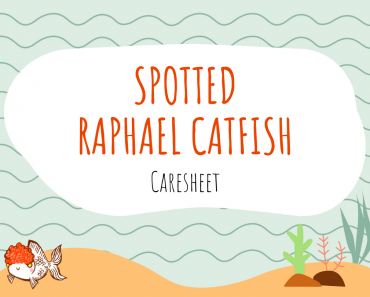If your dog or cat seems overreactive, anxious, or easily overwhelmed, she may be a “highly sensitive pet”. Here’s how to tell, and what you can do to help her navigate the world with less stress.
Back in 1996, when Dr. Elaine Aron’s book, The Highly Sensitive Person: How to Thrive When the World Overwhelms You, was released, you could almost hear the collective sigh of relief. Her research resonated with people around the world who believed there was something wrong with them because they felt things too deeply or cried too easily. On the contrary, the pioneering psychologist found that the trait of high sensitivity is innate and normal, occurring in 15% to 20% of the population. Now, this trait is also being identified in a range of animal species, including our dogs and cats. Here’s what that means, and how to tell if you might have a “highly sensitive pet.”
WHAT DOES HIGH SENSITIVITY MEAN?
According to Dr. Aron, the highly sensitive person (HSP) “has a sensitive nervous system, is aware of subtleties in his/her surroundings, and is more easily overwhelmed when in a highly stimulating environment.” In scientific terms, this trait is known as sensory-processing sensitivity.
For better or worse, highly sensitive people are extremely tuned in to the world around them. Here are the four hallmarks of high sensitivity:
- Depth of processing
- Susceptibility to overstimulation
- Emotional and empathetic
- Sensitive to subtleties
Not long after Dr. Aron’s book was published, biologists began identifying the trait of high sensitivity in more than 100 other animal species (so far), from dogs, cats, and horses to wild creatures such as fish, monkeys, and birds.
EMPOWERED BY POSITIVITY
Often misunderstood, like their human counterparts, “highly sensitive pets” may be labeled as shy, anxious, fearful or neurotic because they prefer to proceed with caution through life.
The way we handle these animals can increase or decrease their reactivity. For example, in her book The Highly Sensitive Dog: Making Life Easier for These Wonderful Dogs, veterinarian Dr. Christine King recalls how she would become highly reactive when she first realized her adopted dog, Miss Tiger Lilly, was dog-aggressive in certain situations.
“My anticipation of trouble didn’t help matters, and my reactiveness only served to amplify the problem in the moment and make such problems more likely in the future,” she writes. “Highly sensitive pets, like highly sensitive people, are all too frequently misunderstood and thus mishandled, which tends to only increase the sensitivity and make the issue even worse.”
Not surprisingly, harsh, angry words or energy will have a negative impact on a dog or cat with high sensitivity. On the other hand, praise, encouragement, trust and other positive actions will help empower her by making her feel better and calmer.
HANDLE WITH CARE
The world can feel like a harsh place to those born with high sensitivity. If you think you might have a “highly sensitive pet,” it’s a good idea to first take her to the vet to make sure she doesn’t have any physical problems that could be contributing to her behavior. If she doesn’t, then here are some tips to help her cope and feel less stressed:
- Build stable and loving social bonds to create a sense of security and belonging.
- Cultivate a calm, quiet home environment.
- Allow your dog or cat time to unwind and withdraw as needed.
- Calm yourself before dealing with your animal, and stay in the moment. (Remember how tuned in she is to you, and don’t anticipate trouble).
- Talk calmly and positively to your animal. Dr. King found it helpful to visualize what she was trying to communicate to her dog.
- Be consistent and enthusiastic in your praise; and calm and gentle when discouraging unwanted behavior, such as unnecessary barking or growling.
When dealing with your “highly sensitive pet,” follow this advice from Dr. King: “Respect and relish the social bonds between…you, prioritize a sense of safety and belonging (in both directions), and be consistent and reliable so that your [animal] learns to trust the bonds you two have created, even when you’re not there.”
“Highly sensitive pets” make wonderful companions. Emotional and empathetic, they bond deeply with their human families and other trusted people and animals. Yet even today, the trait of high sensitivity is still easily overlooked or misunderstood. So before you label Rover an “over-reactor” or dismiss Fluffy as a “fraidy cat,” consider the possibility that your animal companion was born highly sensitive. Cultivate a calm, quiet home environment.
ADVANTAGES & DISADVANTAGES OF HIGH SENSITIVITY
Whether two-legged or four-legged — furry, feathered or finned — highly sensitive beings are simply wired differently. Research shows their brains process sensory input more deeply than their less-sensitive counterparts.
The defining trait of the highly sensitive is a keen awareness of subtleties in the environment — things likely to go unnoticed by others. Some scientists theorize this ability could help a species survive. Much like an early warning system, the highly sensitive individual’s fine-tuned ability to perceive and react to danger could alert the rest of the group, pack or herd to imminent danger.
But there is a downside to being on “high alert” all the time. The “highly sensitive pet”, for example, tends to startle easily and may quickly become overwhelmed by loud noises and new sights, changes in routine, and the intense emotions from people or other animals around them. They may even have a greater reactivity to hunger and pain and take longer to calm down than other dogs and cats would.
Celeste Huttes is a freelance writer specializing in business communications — but she finds it far more fun to write about animals! When she’s not writing, Celeste enjoys yoga, traveling, and quality time with family, friends and animals. Two of her favorite four-leggeds — Emmy the Siamese cat and Zoey, a poodle-beagle mix — live with her in Illinois.



























